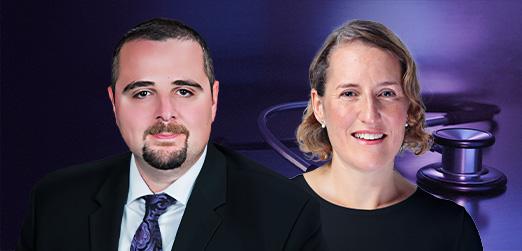- Home
- The 2022 ACC Heart Failure Guidelines: What Do They Mean for Your Practice?
The 2022 ACC Heart Failure Guidelines: What Do They Mean for Your Practice?
- Heart Failure
Available Credit:
- Not accredited
Course Published On:
Course Expiry Date:

Overview
Taking the recent ACC heart failure guideline updates as its core theme, this symposium will provide a succinct overview of the changes with one of the guideline’s primary authors. We will then consider how guidelines have evolved to accommodate the growing number of foundational treatments for heart failure and how we are moving towards personalised care. We also take a look at HFpEF, and assess how our treatment options have changed and what else can be expected for this population.
This symposium is part of Heart Failure Online 2022, a world-class virtual event dedicated to the latest heart failure treatment strategies to support better patient outcomes.
Support Statement
This programme is supported by an unrestricted educational grant from AstraZeneca. The scientific programme has not been influenced in any way by the sponsors.
Target Audience
- Heart Failure Specialists
- General Cardiologists
- General Practitioners (GPs)
- Nurses, Pharmacists, and other Allied Healthcare Professionals
Learning Objectives
Upon completion of this activity, participants will be able to:
- Summarise the main updates to the 2022 ACC heart failure (HF) guidelines
- Compare updates from the ACC with the 2021 ESC HF guidelines
- Recall guideline recommendations for the initiation of foundational therapy for heart failure
- Adopt foundational GMDT early in the disease course
- Postulate how ejection fraction will be used in future trials and in future guidelines
- Review existing and forthcoming trial evidence on SGLT-2 inhibitors in HFpEF
Module |
Title |
Duration |
Speakers |
|---|---|---|---|
| Presentation & Discussion | The ACC Heart Failure Guidelines 2022: What Did We Learn? | 15 mins | Biykem Bozkurt (Texas, US ) |
| Presentation & Discussion | The Future of Guidelines: Towards Personalised Care | 15 mins | Mikhail Kosiborod (Kansas, US ) |
| Presentation & Discussion | HFpEF: The Final Chapter in the Heart Failure Story? | 15 mins | Andrew JS Coats (Warwick, UK ) |
The ACC Heart Failure Guidelines 2022: What Did We Learn?
Duration: 15 mins
Speakers: Biykem Bozkurt (Texas, US )
The Future of Guidelines: Towards Personalised Care
Duration: 15 mins
Speakers: Mikhail Kosiborod (Kansas, US )
HFpEF: The Final Chapter in the Heart Failure Story?
Duration: 15 mins
Speakers: Andrew JS Coats (Warwick, UK )
Chair
Panelist












